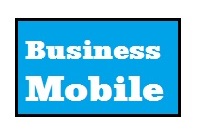Our obsession with mobile phone applications has turned from an occasional download to a full on addictive relationship. With a fifth of smartphone users downloading more apps than six months ago, and if Gfk NOP are to be believed apps may soon replace browsers as the main gateway to the web for British consumers.
GfK NOP found that on average UK users download 15 applications to their phones, keeping 12 of them and using about five daily. The transitory nature of many apps means that while they only use a third of their applications, consumers will always have an appetite for more – with a quarter of smartphone users saying there is no limit to the number of applications they’d have on their phone.
Although a fifth of those questioned would never spend money on an application, the survey suggests that the majority would pay, with half those polled having already paid for an app, which typically range from 50p and £5. Mobile applications that can be used frequently or which provide a necessary service or function are the main reasons for paying for an application, but surprisingly the chance to use an advertising-free app is less of an incentive.
Ian Ralph, mobile technology expert at GfK NOP, says: “This study reveals people love their mobile phone applications and are willing to pay for the right one if they can find it. Companies that can offer apps with the right user experience will find their way in to the hearts, minds and wallets of smartphone users.”
The study shows that a quintessential must-have app does not exist for British consumers, with the most popular mobile phone applications covering diverse areas such as entertainment, social networking, news and – inevitably – weather.
The under 25s use the most apps on a daily basis and the affluent download the greatest number. While both genders primarily use applications for email and games, women like to use them for social networking whereas men prefer travel apps.
Ian Ralph says: “There is no such thing as a ‘killer app’ that everyone wants, as every person’s needs and interests are unique. Instead mobile applications are like music or DVD collections, representing the needs, personalities and interests of the individual. As people become more app aware, they will tailor their mobile applications to fit in with their own lifestyles. The World Cup is a great example, with many smartphone users utilising disposable apps that they will discard when the tournament is over.”
Word of mouth is the biggest driver for app-usage with two-fifths of people downloading mobile applications based on the recommendation of their friends, family or colleagues. This is followed by web research and advertising on app stores.
